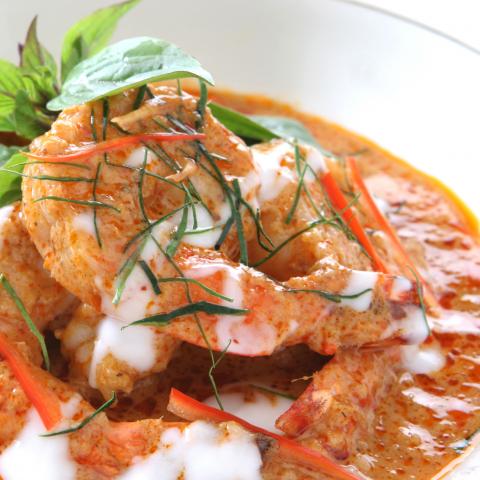Like every other language in the world, the Thai language has unique Thai words with no English translation. These untranslatable terms in Thai are naturally not very easy to learn. The reason is that you, as a foreigner, are learning something that you’re not familiar with at all, since the term doesn’t exist in your language. But don’t worry, ThaiPod101.com will help you master untranslatable Thai words in no time.
Among Thai untranslatable words, the ones that are most often used in daily life (and confuse foreigners the most) are untranslatable words about feelings. Of course, seeing as these are feeling untranslatable words, Thai people understand them and use them regularly, but if you ask them to explain or describe each word, they may find it difficult.
Untranslatable Thai words represent Thainess, a uniqueness in Thai which you’ll be able to see from the list of untranslatable Thai words that ThaiPod101.com has prepared for you. This is especially true of those feeling untranslatable Thai words, as they reflect how Thai people feel and behave. So apart from communication, this topic will also give you a fresh point of view about Thai culture.
We hope you can now see why the untranslatable word in Thai language-learning is such an essential aspect to go over and understand. Let’s get started with our list. Start with a bonus, and download the Must-Know Beginner Vocabulary PDF for FREE! (Logged-In Member Only)
Table of Contents
1. List of Untranslatable Thai Words
As mentioned above, there are many untranslatable words in Thai. Here’s the list of words you’re likely to see and use, put into three categories.
Our goal here is to help you learn what each untranslatable word literally means in Thai. From there, we’ll introduce you to each untranslatable Thai word’s meaning in English, so that you have a better idea of how to use them. Finally, we’ll show you each untranslatable word in Thai phrases and tell you when to use it.
Are you ready? Let’s get started.
1- Thai Untranslatable Words about Feelings
There are many Thai words with no English equivalent in this category. If you interact with Thai people a lot, whether in work or a relationship, you should learn these words so that you understand more about Thai people.
1. งอน (ngaawn)
- Type of word: Verb
- Meaning: งอน (ngaawn) is “a sulky feeling toward someone because of their action” in Thai. This word represents a negative feeling, but it’s not quite as strong as being angry or upset. The feeling ngaawn happens only between people who are close to each other, such as a couple, family members, or friends. There are many actions that indicate if someone feels ngaawn toward you, for example:
- Someone talks to you sarcastically.
- Someone has stopped talking to you, or isn’t willing to talk to you.
- Someone doesn’t want to meet you.
- Someone doesn’t act well toward you as they used to.
- Someone will tell you how they feel directly.
- Example situation:
เมื่อวานตอนไปเที่ยวกัน เธอเอาแต่สนใจโทรศัพท์มือถือ เราเลยงอนเธอแล้ว
mûuea waan dtaawn bpai thîiao gan thooe ao dtàae sŏn jai thoo-rá-sàp muue-thǔue rao looei ngaawn thooe láaeo
“When we went to travel yesterday, you paid attention to nothing but your phone. I ngaawn you.” - Usage in sentence:
Name of person 1 (+rúu-sùek) + ngaawn + name of person 2 = person 1 feels ngaawn toward person 2.
2. น้อยใจ (náauy-jai)
- Type of word: Adverb
- Meaning: น้อยใจ (náauy-jai) is the hurt or sad feeling you feel from not getting attention from people you care for. This word can also be used when those people don’t behave toward you like they should. Being noíjai or náauy-jai can lead to feeling ngaawn. People only feel noíjai toward the people they care for or are close with, such as a couple, family members, or friends. It’s one of the untranslatable sad Thai words, as noíjai is used to show unhappiness.
- Example situation:
เธอรู้สึกน้อยใจที่แม่สนใจแต่น้องสาว
thooe rúu-sùek náauy-jai thîi mâae sŏn-jai dtàae náawng-săao
“She feels noíjai that her mother only pays attention to her younger sister.” - Usage in sentence:
Name of person 1 (+rúu-sùek) + náauy-jai + name of person 2 = person 1 feels náauy-jai toward person 2.
3. ไม่เป็นไร (mâi bpen rai)
- Type of word: Phrase
- Meaning: ไม่เป็นไร (mâi bpen rai) is a phrase that shows you feel okay with the current situation, and there’s no need to do anything more for you. The phrase mâipenrai can be used in many situations, listed as follows:
- As a reply when someone says thank you. It’s like “you’re welcome” in English.
- As a reply when someone says sorry to you and you don’t feel angry toward them.
- As a reply when someone asks if you’re okay or not, and you are okay.
- Example situation:
Situation 1
เอ: ขอบคุณที่ช่วยฉันเรื่องงาน
A: khàawp-khun thîi chûuai chăn rûueang ngaan
A: “Thank you for helping with my work.”บี: ไม่เป็นไร
B: mâi bpen rai
B: “You’re welcome.”Situation 2: B accidentally stepped on A’s foot.
เอ: โอ๊ย
A: óoi
A: “Ouch.”บี: ขอโทษด้วยค่ะ เป็นอะไรมั๊ยคะ
B: khǎaw-thôot dûuai khâ bpen à-rai mái khá
B: “Sorry, are you okay?”A: ไม่เป็นไรค่ะ
A: mâi bpen rai khâ
A: “I’m okay.” - Usage in sentence:
You can use this phrase alone.
4. หมั่นไส้ (màn-sâi)
- Type of word: Adverb
- Meaning: Naturally, when you see that someone else has a good life or is happy, you may feel happy for them, feel indifferent, feel jealous, or feel หมั่นไส้ (màn-sâi).This untranslatable word means in Thai a feeling toward someone who acts over-the-top or shows off too much about something. This feeling isn’t quite jealousy, dislike, annoyance, or anger.
- Example situation:
เห็นรูปบนเฟสบุ๊คของแป้งมั๊ย อวดว่าไปเที่ยวญี่ปุ่นมา ช่างน่าหมั่นไส้
hĕn rûup bon féet-búk khǎawng bpâaeng mái ùuat wâa bpai thîiao yîi-bpùn maa châang nâa màn-sâi
“Have you see photo on Bpaaeng’s facebook,showing off that she has been to Japan. So
nâa-màn-sâi” - Usage in sentence:
Name of person 1 (+rúu-sùek) + màn-sâi + name of person 2 = person 1 feels màn-sâi toward person 2.
5. เกรงใจ (greeng-jai)
- Type of word: Adverb
- Meaning: เกรงใจ (greeng-jai) is the feeling of being afraid to disturb other people, or afraid to have other people do something for you (even if the other parties are willing to do it for you).
- Example situation:
ไปเที่ยวให้สนุกนะ ไม่ต้องซื้อของฝากมาก็ได้ เกรงใจ
bpai thîiao hâi sà-nùk ná mâi dtâawng súue khǎawng fàak maa gâaw dâi greeng jai
“Have a fun trip!! And no need for a souvenir, greeng-jai.” - Usage in sentence:
Name of person 1 (+rúu-sùek) + greeng-jai + name of person 2 = person 1 feels greeng-jai toward person 2. - Additional note: In Thai, there’s a term, which is ความเกรงใจเป็นสมบัติของผู้ดี (khwaam greeng jai bpen sŏm-bàt khǎawng phûu dii). Its literal meaning is “greeng-jai is a characteristic of noble people.” But to put it simply, it means “greeng-jai is a good manner.” This shows that Thai people are considerate.
6. เสียดาย (sǐia-daai)
- Type of word: Adverb
- Meaning: This feeling isn’t quite the same as regret. เสียดาย (sǐia-daai) is the sorry or negative feeling you feel when you’re in the following situations:
- You’ve lost someone or something that used to be yours.
- You don’t get someone or something you want.
- Example situation:
เสียดายที่เราไม่ได้รางวัลที่หนึ่ง
sǐia-daai thîi rao mâi dâi raang-wan thîi nùeng
“I feel sǐia-daai that we didn’t win the first prize.” - Usage in sentence:
Name of person 1 (+rúu-sùek) + sǐia-daai + thîi (the situation you feel sorry about) = person 1 feels sǐia-daai that (the situation you feel sorry about). - Additional note: This untranslatable Thai word is used in an idiom as well: รักพี่เสียดายน้อง (rák phîi sĭia-daai náawng). Its literal meaning is “love older sister/brother, but sǐia-daai little sister/brother.” Thai people use it to explain the situation where you can’t choose between two choices because you want both.
2- Untranslatable Thai Action Words
Thai people have unique actions that only we do. Here are two examples:
1. ไหว้ (Wâi)
- Type of word: Verb
- Meaning: ไหว้ (wâi) is an action that Thai people use to pay respect, politely greet each other, or worship God.
- Example situation:
เมื่อนักเรียนเจอครูควรทำความเคารพโดยการไหว้และกล่าวสวัสดี
mûuea nák-riian jooe khruu khuuan tham khwaam khao-róp dooi gaan wâi láe glàao sà-wàt-dii
“When students meet a teacher, they should pay respect by wai and saying hello.” - Usage in sentence:
Name of person 1 + wâi + name of person 2 = person 1 greets/pay respect to person 2 by wâi.
2. บน (bon)
- Type of word: Verb
- Meaning: บน (bon) is to ask God for help and promise something (such as doing a certain action) in return if your wish is fulfilled later on. Thai people can ask God for help with anything from love, to work, to studying, to asking for a child. The things or actions people promise in return can be anything as well. The famous ones are: offering a boiled pig head, a boiled egg or a flower; to be vegetarian; to do a Thai dance; and the list goes on.
- Example situation:
เธอบนไว้ว่า ถ้าเธอคลอดลูกอย่างปลอดภัย เธอจะกินมังสวิรัติ 1 เดือน
thooe bon wái wâa thâa thooe khlâawt lûuk yàang bplâawt phai thooe jà gin mang-sà-wí-rát nùeng duuean
“She bon to God that if she delivers her child safely, she will be vegetarian for one month.” - Usage in sentence:
Subject + bon + wâa + (thâa……) = Subject bon that if…… (It is normally used with “if”). - Additional note:
If you come to Thailand, you’ll see temples and shrines almost everywhere. There are many gods that Thai people respect, and Thai people still have much spiritual belief. Some gods Thai people like to bon are listed below: - Jâo phâaw sǔuea @ Sǎochingchá is famous for trading.
- Sǎan phrá-dtrii-muu-rá-dtì @ Central World Department Store is famous for love.
- King Rama V @ Phrá-râat-chá-wang Dusit is famous for education.
- Lǔuang-phâaw phrá-phút-thá-gee-sǎawn @ Sǎam-phrá-yaa temple is famous for work.
3- Untranslatable Words about Cooking
Thailand is famous for its cuisine and desserts. So ThaiPod101.com would like to introduce some interesting untranslatable words about cooking.
1. รวน (ruan)
- Type of word: Verb
- Meaning: รวน (ruuan) is to cook meat (of any type) until it’s almost cooked by stir frying it in a pan or pot. The meat will normally be cooked again at a later stage. This is one of the methods Thai people use in cooking.
- Example situation:
แนนกำลังรวนหมูสับเพื่อเอาไปทำยำ
naaen gam-lang ruuan mûu sàp phûuea ao bpai tham yam
“Nan is ruuan ground pork for spicy salad.” - Usage in sentence:
Subject + ruuan + type of meat. - Additional note:
Some examples of dishes that use the ruan method of cooking are ยำ (yam) which is spicy salad and ลาบ (lâap).
2. หัวกะทิ (hǔua gà-thí) and หางกะทิ (hǎang gà-thí)
- Type of word: Noun
- Meaning: หัวกะทิ (hǔua gà-thí) and หางกะทิ (hǎang gà-thí) are types of coconut milk. The process of making coconut milk is to add water to the shredded coconut meat, and then squeeze it until the water becomes coconut milk. The first part of coconut milk we get from this process is called hǔua gà-thí, while the coconut milk we get at the later stage is called hǎang gà-thí. Hǔua gà-thí is richer in taste than hǎang gà-thí.
- Example situation:
เวลาทำแกง ต้องใส่หัวกะทิไปผัดกับเครื่องแกงก่อน แล้วเติมหางกะทิทีหลัง
wee-laa tham gaaeng dtâawng sài hŭua gà-thí bpai phàt gàp khrûueang gaaeng gàawn láaeo dtooem hăang gà-thí thii-lăng
“When making curry, you have to stir fry hǔua gà-thí with curry paste first before adding hăang gà-thí later.” - Usage in sentence: There’s no specific way to use this word, and sentences can vary.
- Additional note: In Thai cuisine and desserts, coconut milk or gà-thí is an important ingredient. If you like cooking, you should know the difference between hǔua gà-thí and hăang gà-thí, as it really matters in how the dish tastes.
Conclusion: How ThaiPod101 Can Help You Learn More Thai
Thai words with no English equivalent isn’t an easy topic, so it may take some time for you to understand. The hardest ones are those related to feelings, which you may not really understand at first.
Here’s a tip for you: It will help you to understand better if you imagine yourself as the person in the given example situations throughout this article. It will be easier for you to imagine the feeling that Thais feel in various situations. Once you understand this topic, you can visit ThaiPod101.com for more Thai lessons to master your Thai!
Before you go, let us know in the comments which untranslatable word in Thai vocabulary is your favorite! Was our untranslatable words in Thai lesson helpful to you? We look forward to hearing from you.

















